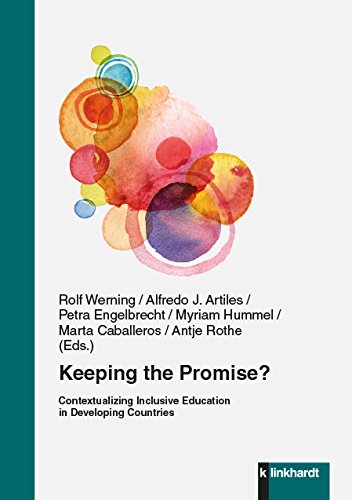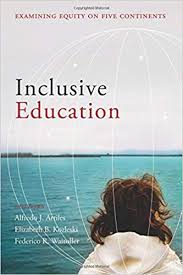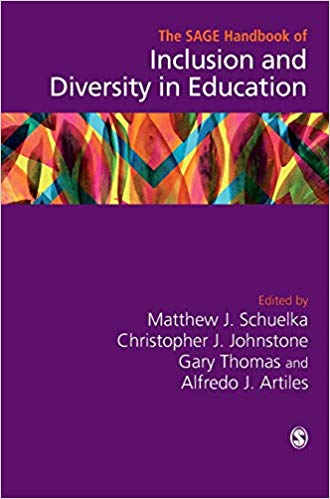We are dedicated to generating and disseminating comparative interdisciplinary research on issues of equity in inclusive education. This research includes multiple scholars representing developed and developing countries across continents, and is concerned with equity issues in inclusive education from a global perspective. Cross-pollination of ideas, intellectual fusion, and rigorous research drives the our work. Our goals are to:
- Generate and disseminate comparative interdisciplinary research on equity in inclusive education.
- Leverage opportunities and resources for researchers by providing web-based collaboration tools that can facilitate multi-site studies on equity in inclusive education.
- Promote exchange opportunities for scholars interested in issues of equity in inclusion education.
The following is a sample of published works focused on Equity in Inclusive Education:
Keeping the Promise? Contextualizing inclusive Education in Developing Countries

Inclusive education became a global promise corroborated by international declarations such as the Salamanca Statement (1994) and the Incheon Declaration (2015). Most countries worldwide have committed to the goal of inclusive education, putting a lot of pressure on so-called developing countries.
Against this backdrop, the threefold purpose of this book is to:
1. Generate research evidence on the development and implementation of inclusive education in developing countries,
2. Contextualize inclusive education in specific developing countries and contexts, and
3. Reflect on the future of inclusive education in developing countries.
Inclusive Education: Examining Equity on Five Continents

Despite the impressive growth of inclusive education around the world, questions and considerations about equity have been neglected. This edited volume makes a major contribution to the field of inclusive education by analyzing equity concerns that have emerged from the implementation of inclusive education models in nine nations on five continents.
The authors examine how disparate approaches to inclusive education are mediated by the official and implicit goals of public education; by access to intellectual, human, and material resources; and by collective understanding of and educational responses to sociocultural differences. Inclusive Education provides critical reviews of research on this important education reform movement, as well as a refined theoretical understanding of the ways equity is addressed. It also offers lessons for future policy and research that are mindful of equity.
The SAGE Handbook of Inclusion and Diversity in Education

This handbook examines policy and practice from around the world with respect to broadly conceived notions of inclusion and diversity within education. It sets out to provide a critical and comprehensive overview of current thinking and debate around aspects such as inclusive education rights, philosophy, context, policy, systems, and practices for a global audience. This makes it an ideal text for researchers and those involved in policy-making, as well as those teaching in classrooms today. Chapters are separated across three key parts: Part I: Conceptualizations and Possibilities of Inclusion and Diversity in Education Part II: Inclusion and Diversity in Educational Practices, Policies, and Systems Part III: Inclusion and Diversity in Global and Local Educational Contexts.